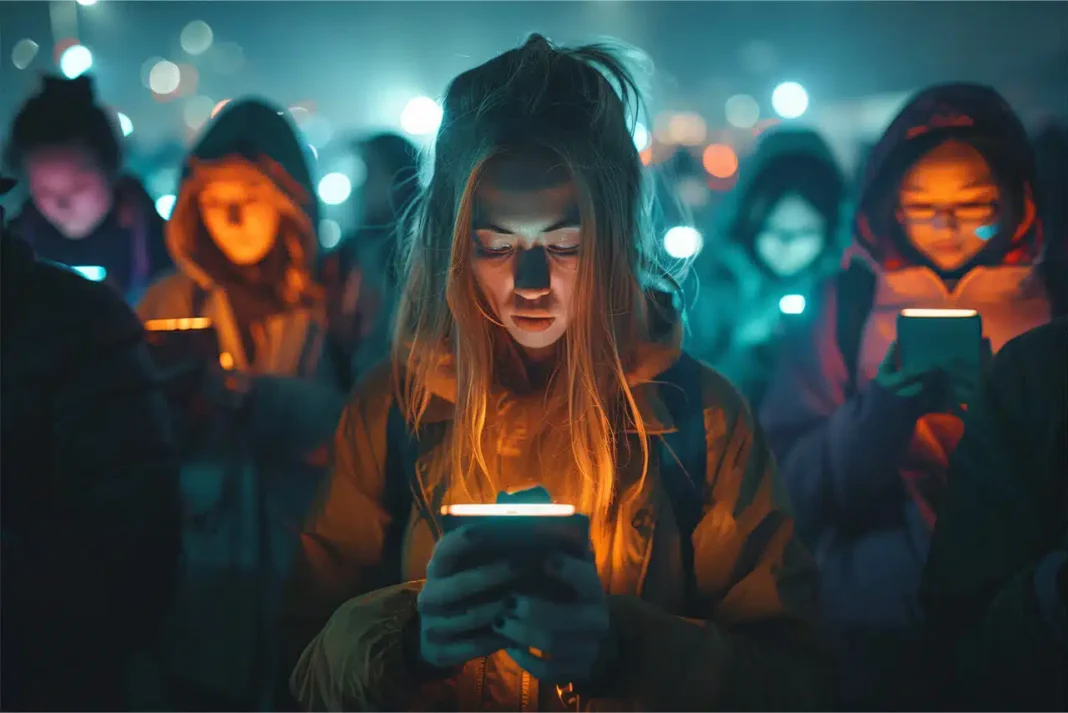Today, almost all of us have become part of the digital world. We hold business meetings online, communicate with friends via social media, and catch up on the news on our phones. However, this constant connection begins to drain our mental and emotional energy over time. This condition, called digital fatigue, can be defined as the distraction, mental fog, exhaustion, and restlessness that arise with intensive screen use.
Development
Digital fatigue is not only a consequence of technology use; it is also a reflection of the speed of modern life and the expectation of constant accessibility. Responding to emails, responding to messages instantly, or staying up-to-date on social media forces individuals to be constantly alert. This creates a constant state of arousal for the brain and reduces attention span.
Research shows that prolonged periods spent in front of screens both increase mental fatigue and negatively impact sleep quality (Mark, Wang & Niiya, 2017). Blue light exposure, in particular, makes it difficult to fall asleep, while constant notifications prevent the brain from resting. As a result, individuals feel mentally tired even if they appear physically rested.
Another dimension of digital fatigue is its impact on social relationships. Social media, while simultaneously keeping us connected, increases comparisons. Constant exposure to the lives of others can foster feelings of inadequacy and worthlessness. Thus, digital fatigue not only manifests as cognitive burnout but also as emotional exhaustion (Andreassen et al., 2017).
The increase in online classes and meetings due to the pandemic in 2020 has brought the concept of “Zoom fatigue” to the forefront. Bailenson (2021) from Stanford University emphasizes that prolonged online meetings increase symptoms of distraction, anxiety, and burnout. This is due to the intense visual stimulation of constantly staring at a screen and the need to see oneself on camera.
Digital fatigue also negatively impacts productivity and the learning process. Research on students shows that prolonged screen time reduces concentration and makes it harder to retain information (Loh & Kanai, 2016). Similarly, studies on employees have shown that it is associated with decreased work performance, decreased motivation, and symptoms of burnout.
An important point here is that the digital world cannot be completely eliminated from our lives. Work, education, and social life are now intertwined with digital tools. Therefore, the point is not to avoid technology, but to achieve a healthy balance of use.
What Can Be Done?
One of the most effective ways to combat digital fatigue is to limit screen time. Taking short breaks during the day, especially a 10-minute break after 50-minute work periods, is beneficial. Reducing blue light exposure in the evening and leaving your phone and computer off at least an hour before bedtime supports sleep quality.
Another important point is to control notifications. Constant phone vibration or pop-up notifications on the computer cause distractions. Keeping only essential notifications open reduces mental load.
“Digital detox” practices can also be beneficial. Minimizing social media use or taking a break from it completely on certain days can help a person regain their mental energy.
Furthermore, offline activities—for example, taking a walk, reading a book, or chatting face-to-face—allow the brain to naturally rest.
Conclusion
Digital fatigue is one of the invisible problems of the modern age. It can manifest itself in different ways in everyone’s life: for some, it can manifest as forgetfulness and distraction; for others, as exhaustion and irritability. The key is to recognize this and, with small steps, restore balance. Remember, technology exists to make our lives easier; however, when we lose control, it can diminish our quality of life. You too can protect your mental health and live a more balanced life by setting your own digital boundaries.
References
-
Andreassen, C. S., Pallesen, S., & Griffiths, M. D. (2017). The relationship between addictive use of social media, narcissism, and self-esteem: Findings from a large national survey. Addictive Behaviors, 64, 287–293. https://doi.org/10.1016/j.addbeh.2016.03.006
-
Bailenson, J. N. (2021). Nonverbal overload: A theoretical argument for the causes of Zoom fatigue. Technology, Mind, and Behavior, 2(1). https://doi.org/10.1037/tmb0000030
-
Loh, K. K., & Kanai, R. (2016). How has the Internet reshaped human cognition? Neuroscientist, 22(5), 506–520. https://doi.org/10.1177/107385841559500


